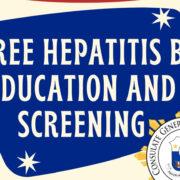Question: I am a priest. Can I get a visa to come to the US?
Answer: Yes. You would have to fall under the definition of a minister and be petitioned as an R-1. A minister is defined as: (1) Fully authorized and trained in religious denomination to conduct religious worship and perform other duties usually performed by clergy of denomination;
(2) Is not a lay preacher or a person not authorized to perform clergy’s duties;
(3) Performs activities rationally related to being a minister; and
(4) Works solely as a minister in the U.S. which may include incidental administrative duties. May be part-time (20 hours per week)
1. Deacons, practitioners of Christian Science and officers of the Salvation Army may be deemed ministers.
Question: I know somebody who is not a priest, but want to be petitioned in an R-1 capacity. Can this be done?
Answer: Yes, if you meet the requirements for a Religious Worker. This would be defined as:
(1) Member of a religious denomination for at least 2 years immediately preceding the time of application for admission that has a bona fide nonprofit religious organization in the US;
(2) Must be coming to work at least in a part-time position (20 hours);
1. Must be coming to perform a religious vocation or occupation in either a professional or nonprofessional capacity.
Question: What is considered a religious occupation?
Answer: The duties must primarily relate to: (i) a traditional religious function and be recognized as a religious occupation within the denomination; (ii) clearly involve inculcating or carrying out the religious creed and beliefs of the denomination; (iii) not include positions that are primarily administrative or support such as janitors, maintenance workers, clerical employees, fundraisers, person solely involved in solicitation of donations or similar positions but may include incidental administrative duties to religious functions; and (iv) not be solely for religious study or training for religious work, although a religious worker is not barred from such training or study.
Question: What is a religious vocation?
Answer: A form of lifetime commitment through vows, investitures, ceremonies or similar indicia to a religious way of life such as nuns, monks, and religious brothers and sisters. Distinguished from secular members of the denomination.
Question: What is considered a religious occupation?
Answer: The duties must primarily relate to: (i) a traditional religious function and be recognized as a religious occupation within the denomination; (ii) clearly involve inculcating or carrying out the religious creed and beliefs of the denomination; (iii) not include positions that are primarily administrative or support such as janitors, maintenance workers, clerical employees, fundraisers, person solely involved in solicitation of donations or similar positions but may include incidental administrative duties to religious functions; and (iv) not be solely for religious study or training for religious work, although a religious worker is not barred from such training or study.
Question: How do I get petitioned for an R-1?
Answer: The employer files the I-129 with attestation and supporting documentation. You cannot self-petition like special immigrants. Department of State no longer grants an R visa without an approved I-129. However, an approved petition is prima facie evidence of entitlement to R-1 status and a consular officer should refer cases to USCIS for reconsideration “sparingly.” Before requesting review of the I-129 by USCIS the consular officer “must have specific evidence of a requirement for automatic revocation, misrepresentation in the petition process, lack of qualification on the part of the beneficiary, or of previously unknown facts, which might alter USCIS’s finding…”
Answer: The employer must then file the attestation by authorized official of the religious organization showing that: (i) the employer is a bona fide nonprofit religious organization or affiliate of one and is tax exempt; (ii) the beneficiary has been a member of the denomination for at least 2 years and is otherwise qualified for the position; (iii) the number of members of the religious organization; (iv) the number of employees who work at the same location and a summary of their responsibilities. USCIS may request a list of all employees, their titles and duties and employment description; (v) number of R-1 or Special Immigrant visa or status holders employed within last 5 years; (vi) number of NIV and IV applications filed in last 5 years; (vii) title and detailed description of position offered; (viii) salaried or nonsalaried compensation in position; (ix) employment will be at least 20 hrs per week; (x) location of employment; and (x) applicant will not be engaged in secular employment.
Question: Can my spouse and children come to the U.S. when I get my R-1?
Answer: Yes, they will receive an R-2. Subject to same time limits as principal, and also may obtain benefit of recapturing time out of U.S. However, they cannot accept employment. R-2s “are not required to demonstrate a residence abroad which they have no intention of abandoning.”
* * *
Brian D. Lerner is an Immigration and Naturalization Attorney. He is a Certified Specialist in Immigration and Nationality Law as Certified by the State Bar of California, Board of Legal Specialization. Mr. Lerner is married to a Filipina and has been helping Filipinos immigrate to the United States for nearly 20 years. His firm represents clients in Deportation/Removal proceedings, does Waivers, Appeals, Naturalization, Adjustments, Criminal Relief, Citizenship, Consulate Processing, Work Permits, Investment Visas and all other areas of Immigration and Naturalization Law. You can go online to http://www.californiaimmigration.us/ and get a free consultation or call us at (562) 495-0554 for an in-person office consultation.




